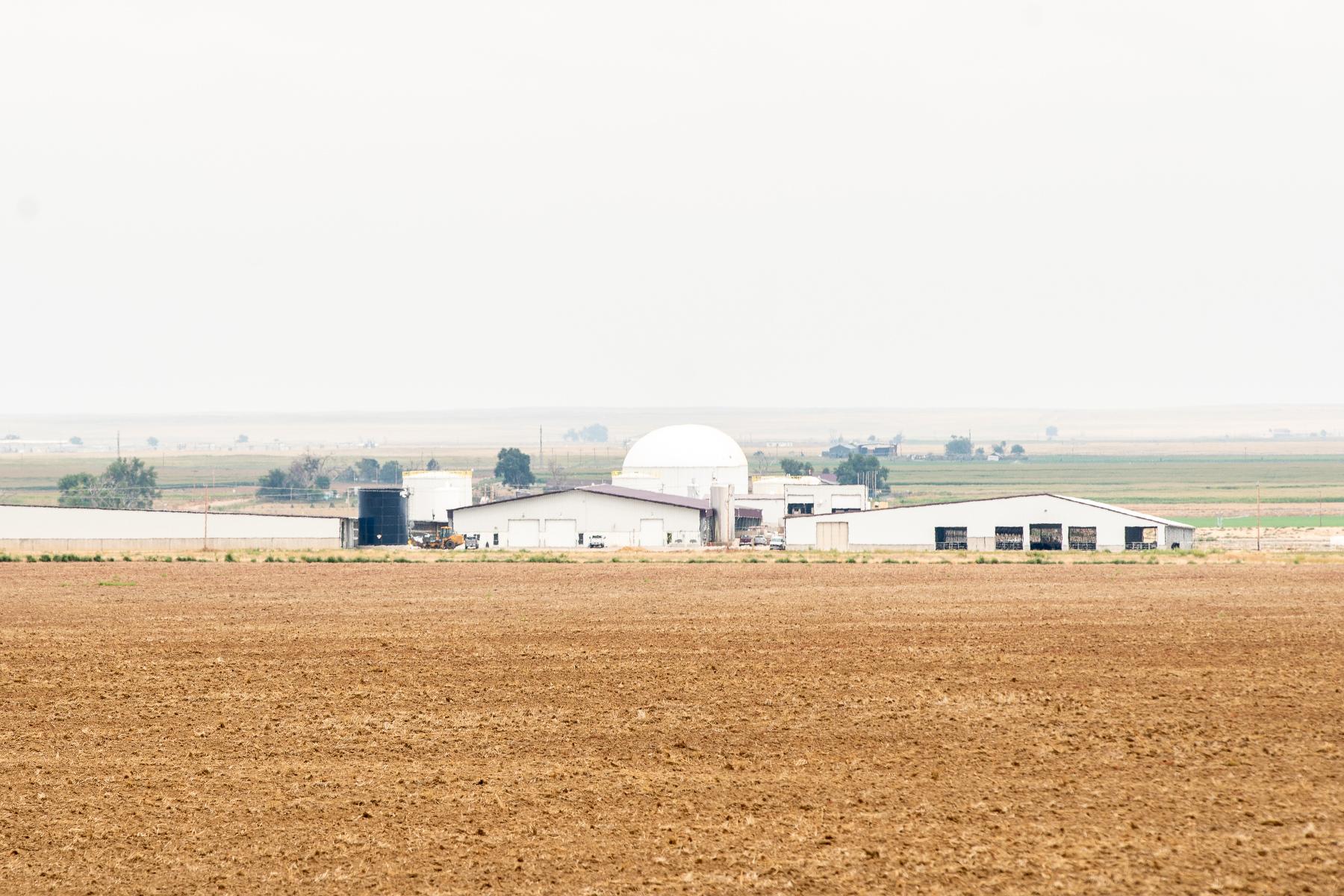
Update: The tax provision has since been removed from the Senate bill, which passed on July 1
A tax on solar and wind projects Republicans added to their marquee budget bill late last week could lead to statewide job losses, strain the electricity grid and further boost energy bills, according to some Colorado energy groups who panned the measure ahead of key votes this week on the bill’s fate.
Republican leadership unveiled the tax on Saturday morning, one piece of the U.S. Senate’s latest version of a sprawling federal budget and domestic policy bill. The legislation was already poised to wipe out hundreds of billions of dollars in incentives for wind and solar developments.
It would now impose an additional tax if a project relies on materials from foreign countries like China, which is largely a given since the U.S. lacks ways to produce key renewable energy supplies. Lobbyists and green energy advocates warn that the extra costs would stymie projects critical to meeting Colorado’s climate goals and powering new industries.
“Solar alone accounts for over 8,000 jobs in Colorado,” said KC Becker, head of the Colorado Solar and Storage Association and a former EPA regional administrator under the Biden administration.
“It’s a really clear assault on the renewable energy industry by the Trump administration,” she said of the bill.
Electricity demand is spiking in the United States amid demand from data centers for artificial intelligence and manufacturing. The federal government estimates that solar facilities paired with battery storage technology and wind energy will provide by far the largest boosts of electricity to the grid this year.
But provisions in the Senate bill could throw a wrench in those plans.
The tax measure would tack a surcharge onto wind and solar projects built after 2027 that use materials from countries like China. Those costs could trickle down to consumers and increase the price of building new projects, renewable energy advocates say.
The American Clean Power Association, a renewable energy trade group, said the Senate bill would undercut American businesses and rural communities who’ve benefited from a boom in renewable power.
“It is astounding that the Senate would intentionally raise prices on consumers rather than encouraging economic growth and addressing the affordability crisis facing American households,” said CEO Jason Grumet in a statement.
The bill also axes a clean energy credit which refunded more than $6 billion to more than 1.2 million American households to install rooftop solar panels or storage batteries, according to data from the Treasury department.
Becker said repealing that credit alone would lead to significant job losses for solar companies. Senator John Hickenlooper (D-CO) introduced an amendment Monday on the Senate floor to extend the credit until 2026, but it’s unclear whether it’ll pass.
These changes mark a rapid reversal from industrial policy goals set by the last administration. The Inflation Reduction Act, a landmark climate investment bill signed by former President Biden in 2022, increased tax incentives to move more renewables manufacturing to America.
Policymakers expected it’d take years to onshore those supply chains. By phasing out tax credits and imposing a new tax, the Senate bill could suffocate the fledgling policy effort, the renewables advocates say.
“With an incentive going away, there’s not necessarily going to be a reason to build that supply chain in the United States,” Becker said, and added that many planned solar and wind projects may die on the vine.
“The combination of all these efforts are going to be bad for the state in so many ways.”
Colorado counting on solar and wind projects to meet clean-energy goals
In March, Colorado generated over 44 percent of its electricity from renewable energy, most of that from wind projects, according to federal government data.
The state has legally mandated goals for utilities like Xcel Energy to cut planet-warming greenhouse gas emissions by 100 percent in 2050, compared to 2005 levels.
To achieve that, utilities and developers are building new wind and solar projects, which can produce cheaper electricity than from burning coal in aging power plants. Tom Hunt, the CEO of Pivot Energy, the state’s largest developer of community-based solar projects, said the company is planning hundreds of additional projects in Colorado.
Hunt said the Senate bill’s tax provision “came out of nowhere” and will force them to re-evaluate each project’s costs, which may end up killing some developments.
“Solar is at this point, across most of the country and certainly Colorado, the cheapest and fastest-to-deploy source of electricity,” Hunt said.
“And in a time when we’re seeing growing demand … it seems crazy to try to then make it more expensive and harder to build electricity generation.”
Colorado power suppliers like Xcel Energy and United Power, which are planning to either build or purchase more solar and wind power, did not immediately return a request for comment. In a statement, the wholesale power supplier Tri-State Generation and Transmission Association said it was focused on providing reliable and affordable electricity, and that versions of the budget bill “present challenges to meeting those priorities.”
Governor Polis criticized the entire bill and its renewable energy measures in a post on X on Saturday.
“The Republican bill now attacks solar and wind investments, which is bad for Colorado on so many levels, but this is a new low,” he wrote.
The Senate is voting on a series of amendments to the bill Monday.









